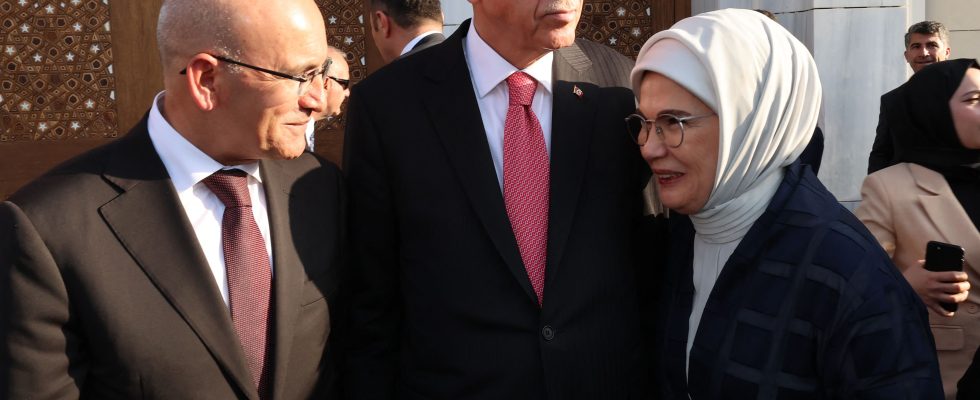In Turkey, the word “government” could almost leave the dictionary, so much the presidential palace concentrates all the powers. Recep Tayyip Erdogan, re-elected in May, has also formed his new “cabinet” with a tight team. The president dismissed the most popular and influential ministers, preferring to appoint lifelong loyalists. With the notable exception of the new Minister of Economy and Finance: Mehmet Simsek. Erdogan, who describes himself as “an economist” after taking a few courses at university, finally agrees to step down in the face of an imminent major crisis.
An economy on the brink
Familiar with this position, which he had already occupied from 2009 to 2015, Mehmet Simsek had been at odds with the Turkish president for several years. But the very unorthodox economic and monetary policy of the Head of State, who has taken control of these areas, has led to endemic inflation and is on the verge of precipitating the country into a catastrophic financial crisis. Contacted during the election campaign, Simsek had initially refused the offer of the stayperhaps to cautiously await the outcome of the election.
He therefore ended up accepting, not without having negotiated to be able to place trusted collaborators at the head of the ministry and the central bank to initiate a 180 degree turn in the Turkish economy. “There is no other choice but to return to a policy based on rational bases,” he declared when he took office, scratching his predecessor and the president in passing.
“Turkish economic policy needs readability and credibility on the markets, that’s what Simsek brings,” said Bahadir Kaleagasi, president of the Institut du Bosphore, a Franco-Turkish economic think tank. The cost of insurance against a Turkish payment default (CDS) has also fallen sharply since the announcement of his appointment, a sign of the confidence that international financiers place in the one they consider to be one of their own. , passed by Deutsche Bank, UBS or Merrill Lynch.
A balancing minister
Immense challenges nevertheless await the new minister. “He will have to show great agility,” summarizes Bahadir Kaleagasi. Its missions seem contradictory: to maintain a high level of GDP growth desired by the president, while fighting against the overheating of the economy by increasing interest rates – in reverse of the previous period – in order to reduce inflation. (60% in 2022 according to official figures, 110% according to independent estimates).
To perfect this balancing act, he will also have to preserve the Turkish currency, which has been in freefall since the presidential election: during the election campaign, Erdogan depleted the reserves of the central bank to keep the pound afloat, helped in this by financial agreements concluded with Russia and the Gulf countries. After the re-election of the president, the financial support of the Gulf monarchies could be coupled with support for the real economy: the Saudi oil giant Aramco has just conducted a series of interviews with Turkish companies for possible construction contracts staggering $50 billion.
Even more than the macroeconomic indicators, the main adversary of Simsek, who promises budgetary rigor, is likely to be in the presidential palace with 1,000 rooms, in Ankara. “During the campaign, Erdogan spent lavishly, promised early retirements, recruitments, free gas, a significant increase in the minimum wage and in the salaries of civil servants,” said economist and consultant Atilla Yesilada.
Upon his victory on May 28, the stay also promised to take back Istanbul from the hands of the opposition during the municipal elections in the spring of 2024. He could again be tempted to use the printing press to convince voters. “It will take at least two years to restore the country’s economy, I’m not at all sure that Erdogan has that patience,” fears Atilla Yesilada. Mehmet Simsek will undoubtedly have to deploy treasures of pedagogy.
